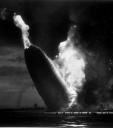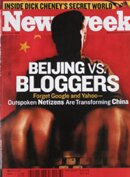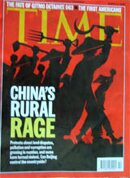Chief Morgan Stanley economist Stephen Roach, one of AsiaPundit’s favorite Cassandras, is again warning that debt- and asset-inflation driven US consumer spending is unsustainable and that China is oblivious to the risks.:
 The current energy shock is a very different threat to a wealth-based consumer than it is to an income-supported consumer. That’s especially the case since it hits US households when they are running a negative saving rate. In the three previous energy shocks — 1973, 1979, and 1990 — the personal saving rate averaged about 8%. US consumers had a cash cushion they could draw upon in order to support lifestyles. A negative saving rate offers no such cushion. Dick Berner has estimated that higher energy product prices are the functional equivalent of an annualized tax of around $130 billion on US consumers, or about 1.4% of total disposable personal income. With a negative saving rate, a significant portion of that tax will undoubtedly be funded by a retrenchment of discretionary consumption. The world’s consumer is now facing major cash-flow pressures heading into the all-important holiday buying season.
The current energy shock is a very different threat to a wealth-based consumer than it is to an income-supported consumer. That’s especially the case since it hits US households when they are running a negative saving rate. In the three previous energy shocks — 1973, 1979, and 1990 — the personal saving rate averaged about 8%. US consumers had a cash cushion they could draw upon in order to support lifestyles. A negative saving rate offers no such cushion. Dick Berner has estimated that higher energy product prices are the functional equivalent of an annualized tax of around $130 billion on US consumers, or about 1.4% of total disposable personal income. With a negative saving rate, a significant portion of that tax will undoubtedly be funded by a retrenchment of discretionary consumption. The world’s consumer is now facing major cash-flow pressures heading into the all-important holiday buying season.
Meanwhile, halfway around the world, nothing seems to be stopping the Chinese producer (see my 21 October dispatch, “Wrong on the China Slowdown”). With GDP growth holding above 9% through 3Q05 and industrial output growth continuing to run north of 16%, a seemingly impervious Chinese economy seems all but oblivious to potentially ominous developments in its external sector. This could be an accident waiting to happen. In an energy-shocked environment, China’s export-led growth dynamic is at growing risk of decoupling from its major source of end-market demand — the American consumer. If US consumption slows as I suspect, an inventory overhang could quickly emerge in China that would undermine production support in the months ahead.
The threat of US-China imbalances is a common theme for the Morgan Stanley crowd, and it is one worth noting (Cassandra was, after all, right).
In a separate note. not yet on the Morgan Stanley website (though I am posting it here under the impression that it will be), Roach offers his impressions on the man (pending confirmation) who will have to deal with the possible downturn, nominee for Federal Reserve Chairman Ben Bernanke:
 It’s easy to celebrate the man and his pedigree. We all know that Ben Bernanke is a solid MIT-trained economist. What we don’t know is his ability to provide institutional leadership for a central bank that is facing a unique confluence of domestic and international imbalances — the asset-bubble-current-account nexus.
It’s easy to celebrate the man and his pedigree. We all know that Ben Bernanke is a solid MIT-trained economist. What we don’t know is his ability to provide institutional leadership for a central bank that is facing a unique confluence of domestic and international imbalances — the asset-bubble-current-account nexus.
Every Fed chairman that I ever worked with or observed over the past 33 years has had to face unique circumstances that he was unprepared for — Burns (inflation), Miller (everything), Volcker (the cost of disinflation), and Greenspan (the legacy of the Asset Economy and the imbalances it has fostered). And each of those past four chairmen were challenged repeatedly by problems outside their comfort zones. Burns was a business cycle expert unprepared to cope with inflation. Volcker was a financial expert who struggled with a wrenching recession. Greenspan was a business consultant who was quickly thrust into the thicket of financial crisis management. Ultimately, Volcker and Greenspan learned to adapt and cope — but not without initially going through wrenching financial market corrections — bonds for Volcker and stocks for Greenspan.
Why should we presume that Bernanke will be spared the same test that his predecessors faced — especially given America’s monstrous current account deficit? Why should we also presume that Bernanke will be challenged by the one problem that is in his comfort zone — namely, inflation? Markets have an uncanny knack of finding the weak link in the new guy’s chain. That remains the risk for the Fed and its new chairman, especially since the origins and funding of America’s external imbalances challenge central bankers still steeped in a pre-globalization, closed-economy mindset.
Bottom line: Like his predecessors, Bernanke’s skillset has not prepared him for the challenges he faces. It will be "learning by doing" — and quite possibly indoctrination under fire. It wouldn’t be the first time either.
Bernanke is considered a top-choice for the Fed position. But it’s worth noting that a change at the Fed right now itself presents a risk. As the Economist noted last month, even Maestro Greenspan had a rocky start (link may be premium content).:
Financial markets are typically more volatile during the first year after the handover to a new chairman than during the rest of his tenure. In October 1987, barely two months after Mr Greenspan took office, the stockmarket crashed. Current conditions for a handover are hardly ideal. America’s economy has never looked so unbalanced, with a negative household savings rate, a housing bubble, a hefty budget deficit, a record current-account deficit and rising inflation. Figures due on October 14th are expected to show that the 12-month rate of inflation has risen above 4%—its highest since 1991.
Although Bernanke comes from the White House, he is a respected Economist and was tipped as the front-runner for the Fed by the Economist and other sources. This is not like the recent nomination of GWB’s personal lawyer for the Supreme Court, and AsiaPundit hopes that partisan attempts to paint him as a crony will not emerge to shake market confidence.
(For what it’s worth, and for TTLB, "I oppose the Miers nomination for the Supreme Court.")
Technorati Tags: asia, china, east asia, economy, northeast asia, bernanke


 The current energy shock is a very different threat to a wealth-based consumer than it is to an income-supported consumer. That’s especially the case since it hits US households when they are running a negative saving rate. In the three previous energy shocks — 1973, 1979, and 1990 — the personal saving rate averaged about 8%. US consumers had a cash cushion they could draw upon in order to support lifestyles. A negative saving rate offers no such cushion. Dick Berner has estimated that higher energy product prices are the functional equivalent of an annualized tax of around $130 billion on US consumers, or about 1.4% of total disposable personal income. With a negative saving rate, a significant portion of that tax will undoubtedly be funded by a retrenchment of discretionary consumption. The world’s consumer is now facing major cash-flow pressures heading into the all-important holiday buying season.
The current energy shock is a very different threat to a wealth-based consumer than it is to an income-supported consumer. That’s especially the case since it hits US households when they are running a negative saving rate. In the three previous energy shocks — 1973, 1979, and 1990 — the personal saving rate averaged about 8%. US consumers had a cash cushion they could draw upon in order to support lifestyles. A negative saving rate offers no such cushion. Dick Berner has estimated that higher energy product prices are the functional equivalent of an annualized tax of around $130 billion on US consumers, or about 1.4% of total disposable personal income. With a negative saving rate, a significant portion of that tax will undoubtedly be funded by a retrenchment of discretionary consumption. The world’s consumer is now facing major cash-flow pressures heading into the all-important holiday buying season. It’s easy to celebrate the man and his pedigree. We all know that Ben Bernanke is a solid MIT-trained economist. What we don’t know is his ability to provide institutional leadership for a central bank that is facing a unique confluence of domestic and international imbalances — the asset-bubble-current-account nexus.
It’s easy to celebrate the man and his pedigree. We all know that Ben Bernanke is a solid MIT-trained economist. What we don’t know is his ability to provide institutional leadership for a central bank that is facing a unique confluence of domestic and international imbalances — the asset-bubble-current-account nexus.
































